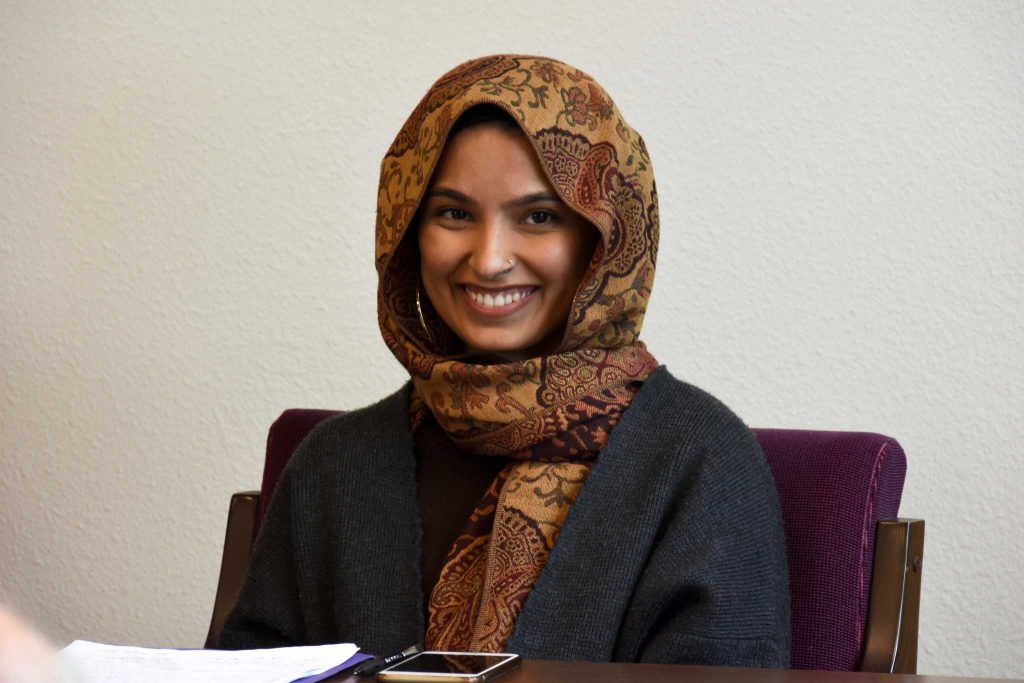
SF State student Maham Khan speaks at a student panel at SF State, regarding the political climate and support needed for Muslim students on April 6, 2017. (Tate Drucker/Xpress)
The Muslim Student Association organized a teach-in event on Thursday afternoon in order to give Muslim students and faculty a chance to communicate their concerns and thoughts on Islamophobia
Students encouraged faculty to create a welcoming environment for Muslim students in light of today’s political climate by addressing ways to combat prejudices within the SF State community.
Student panelists shared their personal experiences and gave faculty some tips on how they can provide solace to students who have dealt with Islamophobic comments and how they can prevent such situations in the classroom.
Sarah Bouabibsa, a senior political science major, said that Islamophobic comments arise from assumptions and feels it is the educator’s responsibility to set the tone in classrooms and create open spaces for students.
“As educators, you hold a lot of power in the classroom, whether you realize it or not,” Bouabibsa said. “It’s important to navigate discussions so we don’t feel like we have to defend ourselves; create a safe space for us so we don’t feel like our education comes with conditions.”
Tara Lockhart, an associate professor of the English department, proposed the panel idea to the Muslim Student Association because she was concerned by President Trump’s anti-Islamic rhetoric and how it would affect Muslim students.
After Trump’s victory, faculty from the English department felt that it was necessary to discuss ways to guarantee the safety of Muslim students within the SF State community.
“As an educator, my biggest fear is that my students will get hurt and that fear has wildly increased since the election,” English professor Jennifer Beach said.
Maham Khan, a third-year international relations major, described her experience on campus the day following President Trump’s victory. Khan was walking to class when she heard two students behind her chant “build the wall.” She turned and stared directly at them — they were immediately silenced.
“I think a way for society to change dynamically is by asking questions, and especially with Islamophobia, questions from an open mind and genuine enthusiastic curiosity, not from judgment
or as a means to start differentiating and othering,” Khan said.
Khan recited a poem that emphasized the importance of effective communication and curiosity based on the need to learn about Islam instead of expressing bigotry.
Third-year communicative disorders major, Ruqaiya Modan, also shared a personal experience from her former community college where a professor called her a terrorist in front of the entire class. Modan talked to the professor during office hours and they resolved the issue.
The four student panelists expressed the need for faculty to take proactive measures to create inclusive classrooms and use their authority to set appropriate guidelines.
“We want to feel welcome,” third-year computer science major Sohaib Syed said. “We want to feel included and treated normally, just as everyone else would like to be.”
Lockhart was moved by the students’ willingness to share such difficult experiences and their determination to educate faculty about how they can better accommodate them.
“I’m hopeful that attendees walked away with increased compassion and awareness of both the causes and effects of Islamophobia, as well as some useful reminders about the role we all can play in combatting racist discourse and marginalization,” Lockhart said.
